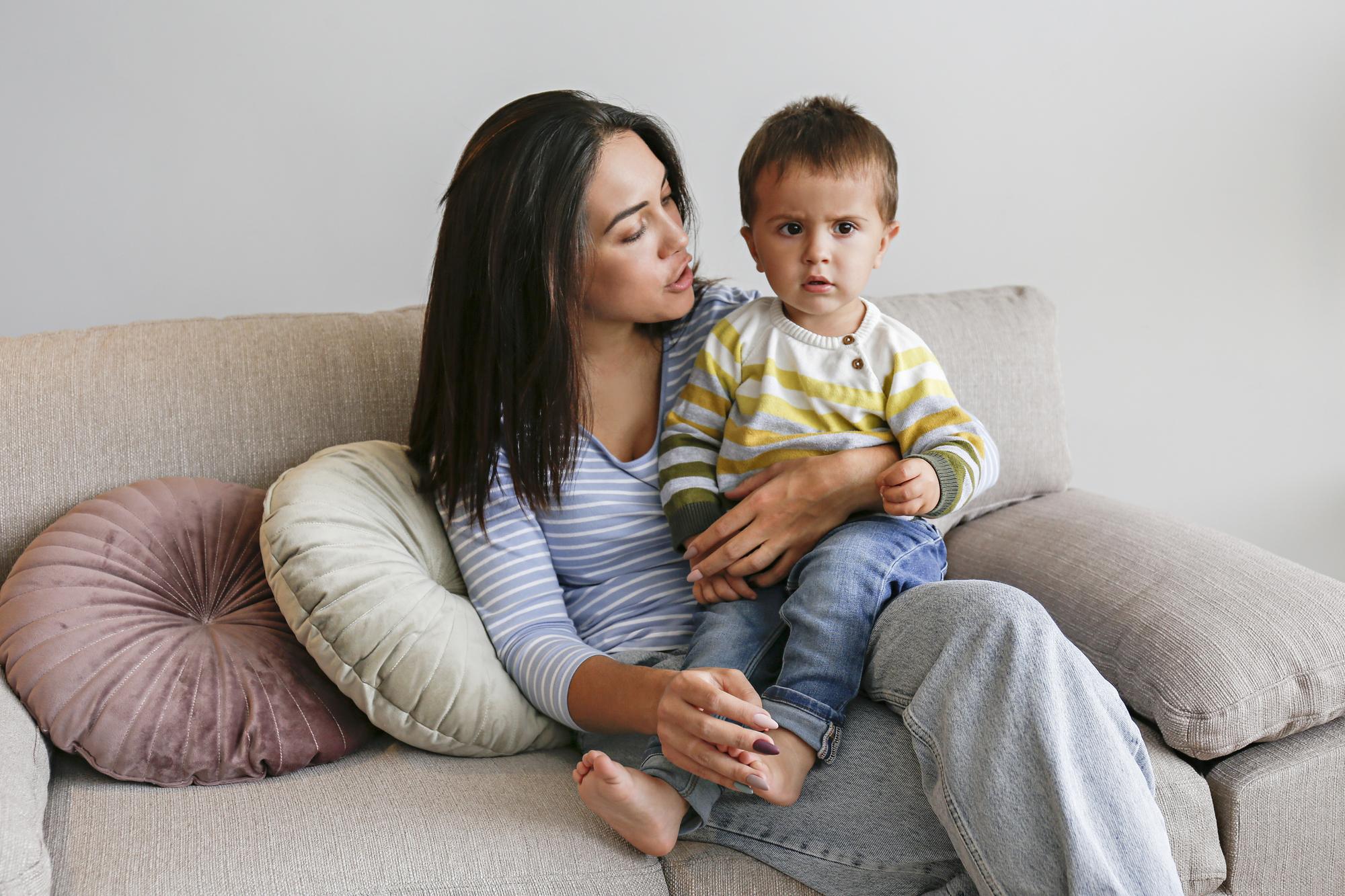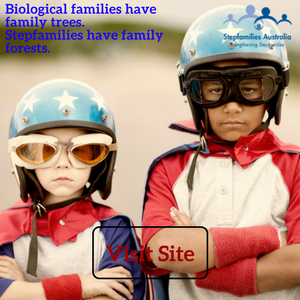Valentine’s Day often brings to mind love and romance, but it also offers a valuable opportunity for parents to reflect on the significance of teaching respectful relationships. As parents and caregivers, we play a crucial role in shaping how our children view and engage in relationships, love, and respect. Children are like sponges, constantly observing and absorbing the behaviours, words, and actions of the adults around them. It’s a BIG responsibility!
From the moment they are born, children are watching how the people around them interact with one another. They learn by example, and this lays the foundation for how they will approach relationships throughout their lives. While there’s no single “right” way to show children what a healthy relationship looks like – as family dynamics and cultural norms vary – one truth remains universal: a respectful relationship is always a safe relationship. That’s the fundamental lesson we must model for our children – an environment where everyone feels valued, heard, and free from harm.
The Core of Respect: Creating a Safe Space
A respectful relationship begins with ensuring that everyone feels safe. A home should be a sanctuary where no one fears being hurt, pressured, or threatened. The adults in the household set the tone for what respectful interactions look like. So, how can we demonstrate respect to our children in everyday life?
Here are some ways parents can role-model healthy relationships:
- We don’t call each other names: Name-calling and hurtful language have no place in a loving relationship. We show respect through the words we use.
- We use good manners: Simple acts of politeness, such as saying “please” and “thank you,” go a long way in fostering mutual respect and kindness.
- We know when to walk away and cool down: Disagreements are natural, but how we handle them matters. Teaching children that it’s okay to take a break and come back to the conversation when emotions are calmer models emotional regulation and self-control.
- We listen to each other: Active listening ensures everyone feels heard and understood. Respectful relationships prioritize thoughtful listening over speaking over or dismissing others.
- We do not try to control each other: Respect means recognising and valuing one another’s autonomy. Healthy relationships are built on cooperation and mutual support, not manipulation or control.

The Power of Role-Modeling Respect
When parents consistently model respectful behaviour, they create an environment where children feel emotionally safe and supported. Couples who respect one another are more likely to work together to navigate life’s challenges, share responsibilities, and offer support during tough times. This not only makes life easier for everyone in the household but also instills values of teamwork and cooperation in children.
While disagreements are inevitable in any relationship, couples who model respect handle arguments constructively. Rather than letting disagreements linger for days, they resolve conflicts calmly and promptly. This teaches children that disagreements are a natural part of relationships but that the goal is to resolve them in a healthy, respectful way. Children who grow up in such homes learn how to manage conflict, how to communicate openly, and how to work through challenges together.
The result is a home filled with more harmony, understanding, and trust. When respect is actively modelled, children feel secure and valued, which allows them to grow emotionally and socially.
The Lasting Impact of Respectful Relationships
Research consistently shows that children raised in homes where respect is a core value are more likely to thrive in various areas of life:
- Emotional well-being: Children who experience respectful relationships are less likely to suffer from mental health issues such as anxiety or depression. They develop healthier coping mechanisms and a strong sense of self-worth.
- Academic success: A respectful environment promotes a positive learning atmosphere. Children who feel safe and supported are more confident in exploring new ideas and asking questions, leading to better outcomes at school.
- Healthy future relationships: Children who witness respectful relationships between their parents are more likely to carry these lessons into their own friendships and partnerships. They understand the importance of mutual respect, communication, and empathy.
- Generational impact: The values of respect and kindness are passed down from one generation to the next. Parents who model respect set an example for their children, who in turn raise their own children with the same principles of respect.
In the long run, children who grow up in a home where respect is a priority are more likely to create healthy, fulfilling relationships as adults. They learn that respect isn’t just about romantic gestures but about how people treat one another in everyday life – with kindness, patience, and understanding.
This Valentine’s Day, take a moment to reflect on the deeper meaning of love and respect in your relationships. While gifts and flowers are lovely, it’s the way we show up for one another every day that truly matters. By modelling respectful behaviour, we provide our children with the tools to build strong, healthy relationships throughout their lives. A home built on respect is a foundation for future happiness, emotional well-being, and meaningful connections. Let’s remember: love is not just something we say – it’s something we show through our actions, words, and attitudes every single day.
Maternal Child Helpline – Available to Victorian families with children from birth to school age. Provides information, support and guidance regarding child health, nutrition, breast feeding, maternal and family health and parenting. Ph: 13 22 29
Parentline – Service providing telephone, counselling, advisory and information for parents and carers with children aged up to 18 years. Ph: 13 22 89 8am–midnight, 7 days a week
DirectLine – Provides free and confidential counselling, information and referral for alcohol and drug-related matters. 1800 888 236
The Men’s Referral Service – Offers a confidential telephone service provided for men by men. For men who want to stop their violent or abusive behaviour towards their family members. Women can also seek information and help for their male partner, husband, relative or friend.
Ph: 1300 766 491 or (03) 9487 4500 Mon–Fri: 9am–9pm
1800 RESPECT – Confidential information, counselling and support service- Open 24 hours to support people impacted by sexual assault, domestic or family violence and abuse. Call 1800 737 732 or call 000 if you are in immediate danger.
Women’s Legal Service – 8622 0600
Lifeline Australia – 13 11 14 – Crisis Support and Suicide Prevention.
Safe Steps – Provides crisis telephone support, information and referral to safe accommodation (refuge) for women experiencing violence and abuse in their relationships. 1800 015 188 or Ph: (03) 9322 3555 (24 hr)
INTOUCH – a leading accredited service, which provides services, programs and responses to issues of family violence in migrant and refugee communities. Email them at admin@intouch.org.au or call 1800 755 988
Wire Women’s Support Line – Provides support, information and referrals on any issues, such as family relationships and legal issues; domestic/family violence; housing and homelessness; emotional wellbeing; mental health – anxiety, fear, stress and depression; and job search, study options and community volunteering. Ph: 1300 134 130 Mon-Fri: 9am–5pm
Drummond Street Services – A service based in Melbourne, West and North Victoria that offers individual and family support, counselling around parenting, relationships, mental health and wellbeing for children, young people and adults. They can also connect you to the best support for you and your family ph: 96636733
Stepfamilies Australia – an online support service to strengthening step and blended family’s email: info@stepfamilies@ds.org.au
You may also like to read:
5 Ground Rules for Successful Co-Parenting
Parenting – starts with communication
Valentine’s Day is a chance to role model a loving relationship to your children
8 Ways to Model a Healthy Relationship to your Children
Why Valentine’s Day Is Often a Missed Opportunity for Dads
How to positively demonstrate your relationship to your children
Children Learn How to Have Adult Relationships from Observing their Parents








